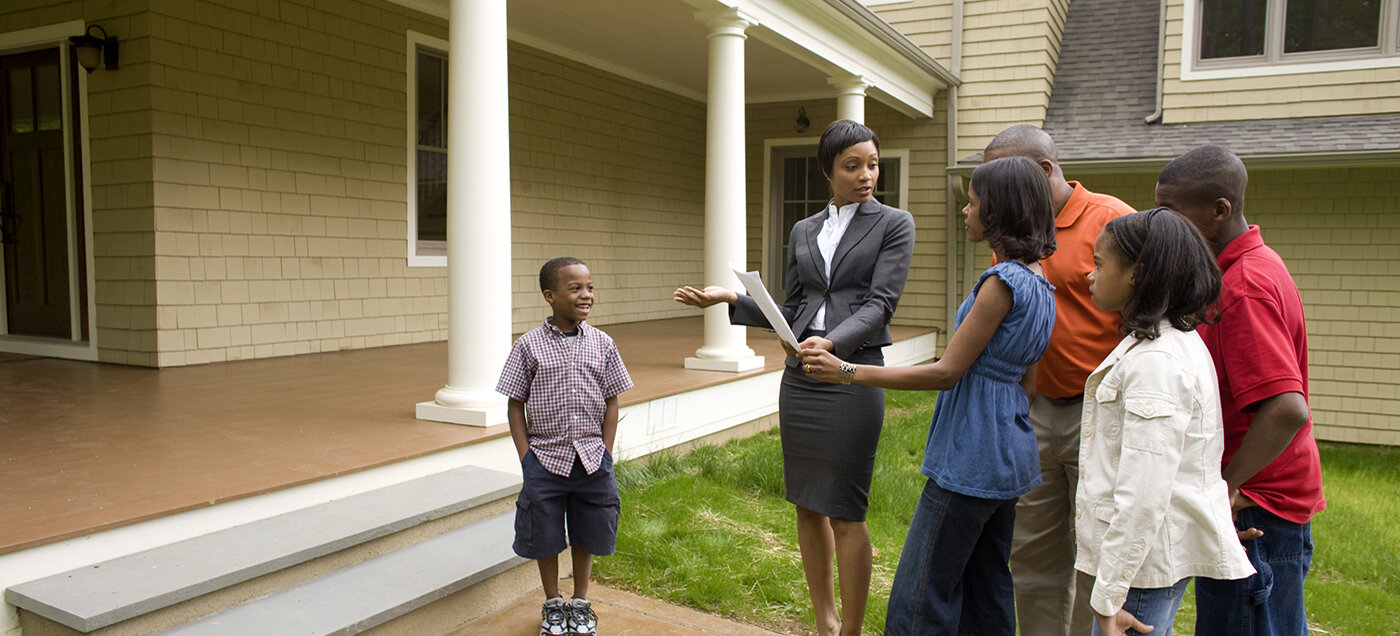Residential Real Estate News

One Third of Recent U.S. Movers Are Single-Income Households in 2021
Residential News » Seattle Edition | By David Barley | November 11, 2021 7:50 AM ET
Up from 29% the year before Covid outbreak
According to a new report from national property broker Redfin, more than one-third (34%) of people who moved during the coronavirus pandemic live in a home where only one adult has a full-time job.
By comparison, just 29% lived in a single-income household before the pandemic. This is based on an August 2021 Redfin survey of 1,023 U.S. residents who have moved to a new home since March 2020.
As the portion of people living in single-income households increased, the share living in dual-income households declined. Slightly more than half (58%) of the recent movers Redfin surveyed live in a home with two adults working a full-time job, down from 62% before the pandemic.
"While some people chose to move down to a single-income household, others had no choice," Redfin Deputy Chief Economist Taylor Marr said. "Thousands of Americans lost their jobs during the pandemic, and scores of parents had to leave the workforce when daycares and schools shut down. Most workers are rethinking where their careers fall on life's priority list."
Remote work during the pandemic also enabled many families to relocate to more affordable places, where it's often more feasible to live in a home with just one income. In the third quarter, 30% of Redfin.com users were looking to move to a new metro area, up from 26% before the pandemic. Among the most popular destinations were Atlanta, San Antonio and Tampa, FL--all metros with median home sale prices below the national level.
"A lot of the families that were able to move down to one income during the pandemic were high earners," Marr said. "High earners tend to have the flexibility to work remotely, which means it's easier for them to relocate to a more affordable place where only one adult needs to work full time. Lower-wage workers who are still required to show up in person, such as restaurant and grocery staff, are less likely to have the opportunity to move."
A pandemic retirement boom may have also contributed to the increase in the share of single-income households. The pandemic drove more than 3 million baby boomers into early retirement, according to a study by the Federal Reserve Bank of St. Louis.
83% of Recent Movers Are Happier After Relocating
More than three-quarters (83%) of respondents said they are at least a little happier after moving. Just 7% reported being less happy and 11% said their happiness is about the same.
Austin, TX has seen an influx of out-of-towners move in during the pandemic. Many of them actually grew up in the area, left for a job, and are now able to come back and live near family, according to local Redfin real estate agent Debbie Newby.
"A majority of my buyers today are Texas natives who are thrilled to be coming home," Newby said. "I recently worked with one young couple who had been living in the Bay Area and working in tech. The wife grew up in Austin and wanted to move back to be closer to her family members, one of whom was ill. They bought a home Near Zilker Park in January and are now working remotely. They're ecstatic to be in Austin."
While Austin home prices have soared well above the national median during the pandemic, the Texas metro remains more affordable than major coastal hubs including San Francisco and New York.
"Most people who move relocate to somewhere less expensive," Marr said. "Moving tends to make people happier because it means they're getting more bang for their buck--frequently in the form of additional space, better weather and schools, or a shorter commute to their workplace."
Sign Up Free | The WPJ Weekly Newsletter
Relevant real estate news.
Actionable market intelligence.
Right to your inbox every week.
Real Estate Listings Showcase
Related News Stories
Residential Real Estate Headlines
- Las Vegas Area Home Prices Uptick 4.3 Percent Annually in March
- Single-Family Rent Growth in U.S. Trends Upward in 2025
- U.S. Mortgage Rates Tick Down Post Trump Tariffs Commencement
- President Trump's 'Liberation Day' Tariffs Potential Impact on the U.S. Housing and Mortgage Markets
- Baby Boomers Biggest Cohort of U.S. Home Buyers in 2025 as Millennials Decline
- U.S. Monthly Housing Payments Hit Record High in 2025
- U.S. Pending Home Sales Uptick in February
- Global Prime Residential Rent Slowdown Continued in Late 2024
- Ireland Home Price Inflation Hits 8 Year High in Early 2025
- Existing Home Sales in America Uptick in February
- Great Miami Area Residential Sales Decline 15 Percent Annually in February
- Mortgage Rates Uptick in Mid-March, Ending 9-Week Decline in U.S.
- World Property Ventures Builds the Future of Real Estate with New Funding Round
- U.S. Builder Sentiment Declines Amid Economic Uncertainty and Rising Costs
- Black Homeownership Rates in U.S. Enjoy Largest Annual Increase of All Racial Groups
- Wealthy Renters Are Taking Over More of the U.S. Rental Market
- If U.S. Congress Does Not Extend NFIP Soon, Thousands of Daily Home Closings Impacted
- U.S. Mortgage Applications Spike 11 Percent in Early March
- Greater Palm Beach Area Residential Sales Rise in Early 2025
- New Apartments in U.S. Are Leasing at Slowest Pace on Record
- U.S. Mortgage Rates Drop to 4 Month Low in March
- Overall U.S. Mortgage Delinquency Rates Dip in December
- New Tariffs on Canada, Mexico to Impact U.S. Homebuilder Input Costs
- Monaco's Property Market: A Tale of Two Cities
- U.S. Home Purchase Cancellations Surge, 1 in 7 Sales Getting Canceled
- U.S. Pending Home Sales Hit Historic Low in Early 2025
- Greater Miami Area Residential Sales Dip in January
- Governor DeSantis Supports Ending Property Taxes in Florida
- WPV Aims to Become the Berkshire Hathaway of Real Estate Tech
- U.S. Home Sales Slump Continues in January
- Average Americans Spend 38 Percent of Monthly Income on Mortgage Payments
- Switzerland's Safe-Haven Appeal Grows with World's Wealthy Homebuyers
- U.S. Builder Confidence Rapidly Declines in February
- Las Vegas Home Sales Rise 6.7 Percent Annually in January, Condo Sales Dip
- Homebuyer Demand in America Drops to 5-Year Low in Early 2025
- Ownership More Affordable Than Renting in Most U.S. Markets
- The World's First Global Listings Service Launches, Called a GLS
- Home Prices Continue to Rise in 89 Percent of U.S. Metros in Late 2024
- Global Luxury Residential Prices Showed Gradual Improvement in Late 2024
- U.S. Construction Hiring Rate Drops to Lowest Levels in 5 Years





